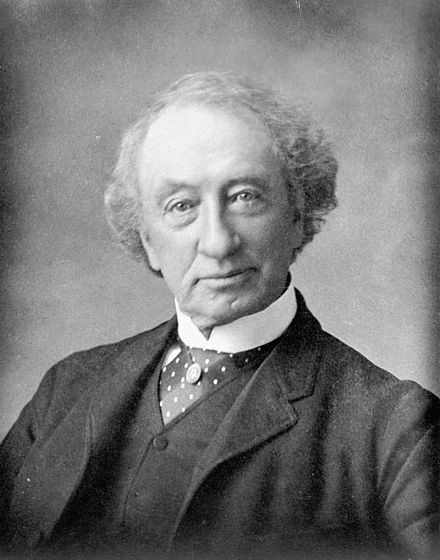Before first light at 5 a.m. four years ago, this scribe witnessed a work crew assemble in front of city hall and spirit away the statue of gin-loving Sir John A. Macdonald. Without doubt our first prime minister and a MP for Victoria had a very mixed historical legacy of nation-building and was an architect of the residential-school system.
But, instead of supporting the city’s important reconciliation efforts with First Nations, the action seriously undermined trust within council and damaged credibility with residents.
The autocratic handling of the decision without adequate public consultation was a stunning act of manipulation and failed municipal governance. Despite indications to the contrary, the outgoing council has still not made a decision on what to do with the statue.
The recent Governance Review Report is a blunt indictment of city governance practices and makes 30 recommendations to improve accountability, transparency and decision-making. It calls for greater transparency – open meetings and minutes – regarding the City Family advisory body where the decision to remove the statue originated.
If you remember, a black shroud was erected to hide the deed from residents and the media. Then the statue was severed from its limestone base, a crane lifted it onto a flatbed truck, it was then bundled and secured face down, and sent to parts unknown.
The event had the air of a funeral without ceremony, for others, a celebration, then it turned into a tense but civilized protest. It garnered extensive press coverage across Canada – not every day you unilaterally cancel culture and delete a prime minister.
The province was offered the 635-kilogram bronze statue, but quickly declined. The Minister of Tourism in Ontario expressed interest, but that never materialized. The Confederation Fountain location on Menzies St. was considered for a while.
In February 2021, vandals beheaded a bust of Queen Elizabeth 11 located in Beacon Hill Park. The whereabouts of the monarch’s head remains unknown. Then on July 1, 2021, a mob of hooligans – cheered on by a crowd – dispatched Capt. James Cook into the Inner Harbour.
Of course, statues judged hateful have come and gone since they were first put up about 30,000 years ago. Of late though, statues are falling like so many trees.
It’s hard to match though what the Eastern Bloc and Soviet Union have done. After the Cold War, Hungarians decided not to erase their memory of the Communist era. In 1991 they created Memento Park, an open-air museum in Budapest containing Soviet monuments. My favourite, an enormous pedestal with just Stalins’ boots remaining.
There is merit for an ideological city council creating a dedicated park for fallen historical figures and artifacts.
The statue of Queen Victoria on the Legislature lawn – often criticized for her racist behaviour – is still vulnerable after a mob sprayed it with paint. Not sure what his historical sins were, but the gold-plated, two-metre high statue of Capt. George Vancouver on top of the legislature could be next.
Why stop there? The Nellie McClung Library, named after a supporter of the then popular social philosophy of eugenics campaigned for the sterilization of those considered “simple-minded”. Tommy Douglas, credited with establishing our modern health care system, was a eugenicist, but has kept his reputation intact. There could also be a special section for dispatched street signs.
Stalin’s World or Grutas Park in Lithuania is another commemorative park where locals can recall a dark historical period. Fallen Monuments Park in Moscow is a ‘final resting place’ for numerous Soviet statues and memorials. Off the coast of Crimea, a diver has made an underwater museum of Soviet statues “to show how the past has been submerged.”
Given a chance to cancel culture and simply bury the truth again – and that includes dispatching statues – will tear us apart. So, what does the community do with Sir John?
The most sensible location to learn about history is the 136-year-old Royal BC Museum (although the ‘Royal’ part may be troublesome for a few). It was founded in response to a petition from prominent citizens wanting to highlight the province’s natural and human history.
Unfortunately, any learning might have to await a revamped museum.
The city is at the end of an indigenous-led consultation process on reconciliation – the last session is just before the fall election on Sept. 12 – when just maybe we learn the statue’s fate. That process was born out of the statue’s removal when council was soundly criticized for moving too quickly, limiting public debate, and frankly, bungling every tenet of good governance.
At the time, outgoing Mayor Lisa Helps said she had no idea of the public interest, apologizing for the lack of public consultation.
She told the Globe and Mail on June 4, 2021, “Personally, I can’t see it being installed in any other public place, except for maybe the Royal B.C. Museum.”
The RBCM then released the results of a racism report and apologized to indigenous people for mistreatment, and promised to revamp its operations. If the board truly believes, ‘it’s not the museum it should be,’ then install the Macdonald statue and create an exhibit reflecting a balanced legacy.
There are other colonial symbols that have gone by the wayside – the Capt. Cook statue, a portrait of Queen Victoria at city hall and the cannon at Laurel Point. There’s almost enough to fill one empty floor.
The failed governance by city council around the stunning Sir John. A. Macdonald statue removal four years ago remains a case study in how not to govern.
Comment: From Victoria City Hall, a case study of how not to govern, Times Colonist, Aug. 6, 2022.

very clear and good article easy to understand. Thank you